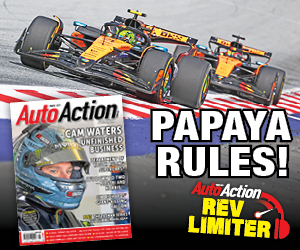ACCELERATED RESTRUCTURE


Accelerated Restructure
Motorsport Australia CEO Eugene Arocca spoke to selected media ahead of the governing body announcing a restructure of its operations.
The plans implemented though the governing body’s Recovery Taskforce include growing the use of technology, reviewing the governance by external parties, a strategy to combat mental health within the industry and if the licencing situation for Victoria.
Here is a sample of the interview as featured in issue 1792, out now:
What will the result of this restructure be to Motorsport Australia’s interstate operations?
“We have six state offices, four of them are standalone or we pay rent for. In the case of WA, we actually own an office. In two states, we have our staff working out of a state government sports department body, so New South Wales and Queensland we actually have a workstation inside a state sporting association centre.
“Our aim would be to close down the standalone offices where one or two staff are sitting in a space that has been used for meetings, but are no longer required and that alone was making a significant impact on our bottom line. We believe we can continue to service our states without needing to have a public face. I think the time of public engagement where people walk through the door – at least for the next 6-12 months – to engage with someone, is going to be less and less.
Has this period allowed Motorsport Australia to implement plans sooner?
“We actually had our strategic plan in place and part of that plan was to rationalise and improve on our structure. Motorsport Australia – previously CAMS – is a product of many, many years of bolt-ons. If someone thought it was a good idea at a certain point in time, we would just do it and what we have created is some 75 different bodies or entities within our structure with over 500 volunteers, who have a say in governance. That is an extraordinary number. You wouldn’t get that at the IOC (International Olympic Committee) and we had made the decision last year to start to review the over governance of the organisation by external parties, so we had it in our mind to do it in the next year or two. But what the crisis has done is allowed us to bring forward a lot of our planning.”
Has Motorsport Australia implemented a strategy to aid competitors with mental health issues during the hiatus?
“We have focused very heavily on the mental health of our staff, for whom we are more directly responsible as employees, both under legislation, and morally and ethically. We’ve done a lot of work to ensure our 50-odd employees and the wider range bubble of our volunteer people who assist in our governance, are being reached out to.
“I haven’t heard of that issue is a wider motor sport community. What we had was a lot members holding off renewing their licences, which is an obviously reaction when you’re not able to race. What we’ve heard is a lot of people are keen to get going, but I have not heard of anyone being really impacted about not being able to go racing. If anyone was to be real impacted, it would be the professional drivers, who rely on motor sport for an income.
“My experience from talking to members is that there are bigger issues on their plate at the moment for many of them, and their health is paramount.
“If it did come across my desk we would certainly look to provide a service. We have a service for our staff, which is bespoke and allows them to call a professional outsourcing facility.”
Read the rest of the interview in the latest issue of Auto Action, available right now.
Also make sure you follow us on social media Facebook, Twitter, Instagram or our weekly email newsletter for all the latest updates between issues.






